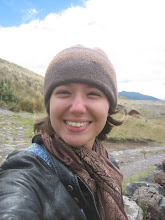Social Work
My favorite part of being a social worker, particularly a community organizer, is never having the same day twice. Everyday, I have something new to think about, plan for, or implement. The work challenges me everyday to think in a different way. It is a profession that allows me to work with others towards positive social change on an individual, community, and policy level. It also relies upon my own strengths of creative critical thinking, reliability, kindness, and patience. I know that many times I can find myself writing and reflecting on the difficulties that come with working with other humans, but I can’t see myself being anything other than a social worker.
As a young social worker learning in both the national and international field, I would like to share some of the lessons I have learned.
Flexibility
Flexibility is one of the most important aspects of social work. As a social worker, I am responsible for supporting and empowering individuals and communities on their own terms. Of course to do this you have to have time, money, support, and consensus. Therefore, I work to balance the roles of accountant, therapist, planner, administrator, and advocate. I have to jump into to any role at anytime to meet others needs. I strive to meet organizational and community needs in Detroit and in Cape Town. But where is the line drawn between being flexible and being taking advantage of?
Within many of my conversations with Stephanie and other social workers, we talk about where the line is between flexibility and inefficiency. At my placement, I have worked hard to support Safe Line’s programs and meet their requests in a timely manner. In contrast, I have run into difficulties finding the same support from Safe Line. I do not expect to be lead by the hand, but I do expect to be informed of events or meetings like any other staff member. Through self-initiated communication, I have navigated a schedule for the next week and laid out my expectations for clear communication.
Communication
Communication is another key aspect to social work. Whether working with clients, co-workers, or other agencies with out communication nothing can move forward.
For example, Safe Line requested a full day work shop on Group Work this past Monday. I planned an in depth work shop on creating a group work logic model, using icebreakers, and incorporating art and music therapy into groups for the staff. On Monday, I set up my workshop and ushered people into the meeting room to begin. A few moments later, I was told that the staff was going to start the morning off with devotionals. An hour later, the staff had finished with devotionals and the director had called a staff meeting. I left the day having lead only 40 minutes of my full day workshop.
Professionalism
Professionalism is another aspect of social work that I have found meaning in during my time in Cape Town. In the few weeks I have been challenged by my own and others cultural view of professionalism. Though cultural difference is an asset, I find myself frustrated by the South African work ethic. With so much need, when is it ok to expect staff members to finish paper work, attend meetings, and arrive on time?
Just some thoughts.

No comments:
Post a Comment